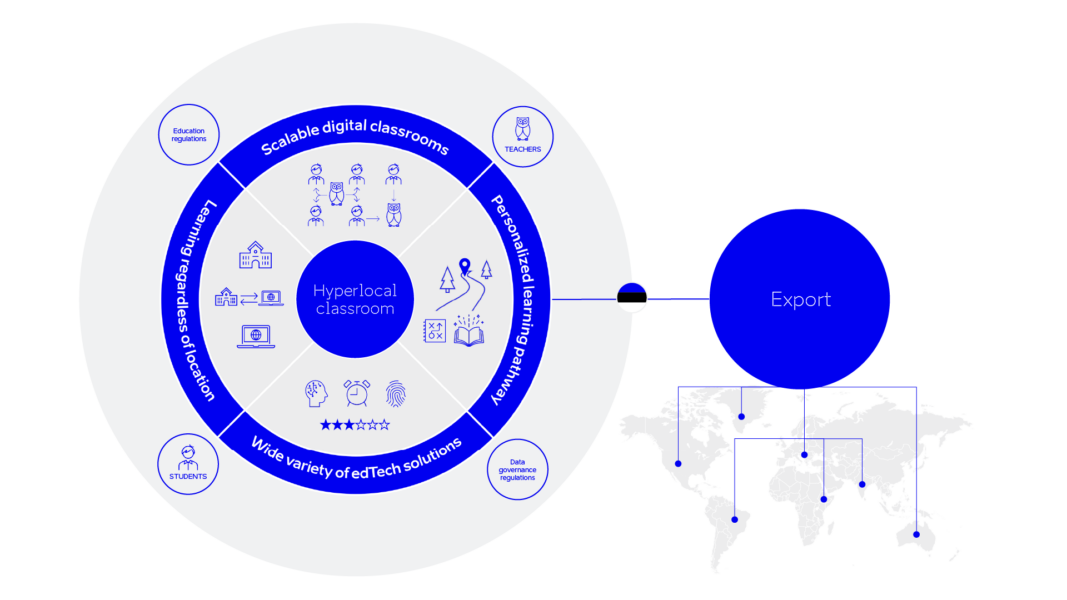The global education system is facing a severe shortage of teachers, with an estimate of 69 million new teachers needed to meet the 2030 education targets. This shortage, coupled with the conservative nature of educational development, highlights the urgent need for innovation and a more efficient use of resources in the education sector.
Edumus & Miltton
Personalized learning journey
At the time of carrying out this project, Accelerate Estonia had a wider goal of supporting public/private partnerships, which later evolved to a more narrow focus on unlocking new markets by overcoming regulatory barriers.

Introduction
Problem
The slow pace of training new teachers poses a significant challenge for the state, as the current rate fails to meet both present and future educational needs. Today’s education system is also increasingly disconnected from the rapid developments happening in society and the labor market, as traditional structures are not equipped to prepare students for a diverse and specialized workforce.
Education that is overly tied to specific locations and schedules is showing growing limitations in the face of a worsening teacher shortage, a declining population, and increasing urbanization.
Solution
Edumus and Millton Events have proposed a scalable education system that enables personalised education, allowing students to choose what, when and with whom they are learning.
By leveraging technology, existing teachers can extend their impact beyond individual classrooms, making learning more dynamic and accessible.
End Goal
The project’s long term goal is to create a framework for formal acceptance and appropriate funding from the public sector for different learning methods. The aim is to make Estonia the first country in the world to enable personalised education as a public system, formally accepting all different kinds of learning methods and environments.
Outcome
The national pilot project was conducted in Estonia from September to December 2022, offering social studies courses in 10 schools and involving over 300 students. The courses were developed by professional teachers and educational technologists to ensure a methodologically interactive and social learning experience that would lead to the most effective learning outcomes.

The positive feedback from students and teachers was significant: as many as 80.6% of respondents agreed that hyperlocal learning suited them very well.
The experiment demonstrated that the state must and can open the education market, which allows educational service providers to organize teaching. This would require changes to regulations and laws related to school governance and teachers’ salary funds so that educational institutions could purchase equivalent educational services on equal terms. Based on the results of the experiment, the necessary changes to the Basic School and Upper Secondary School Act were developed. The project has since been expanded to the UAE.
